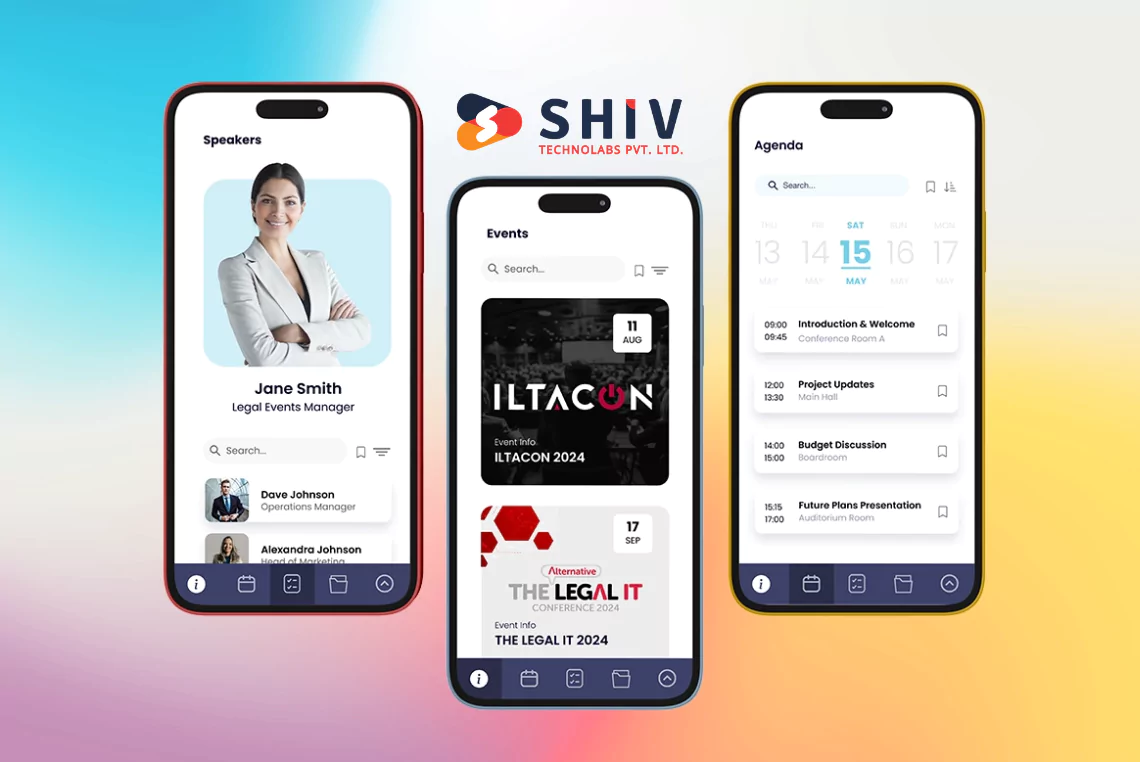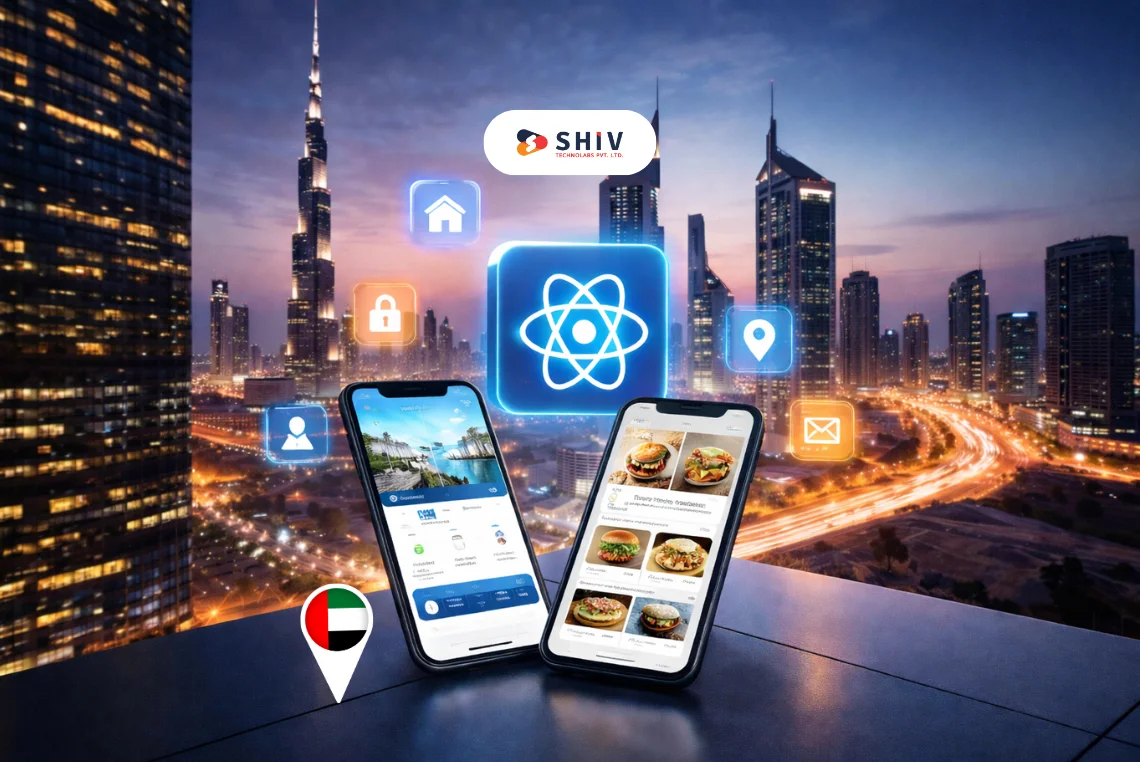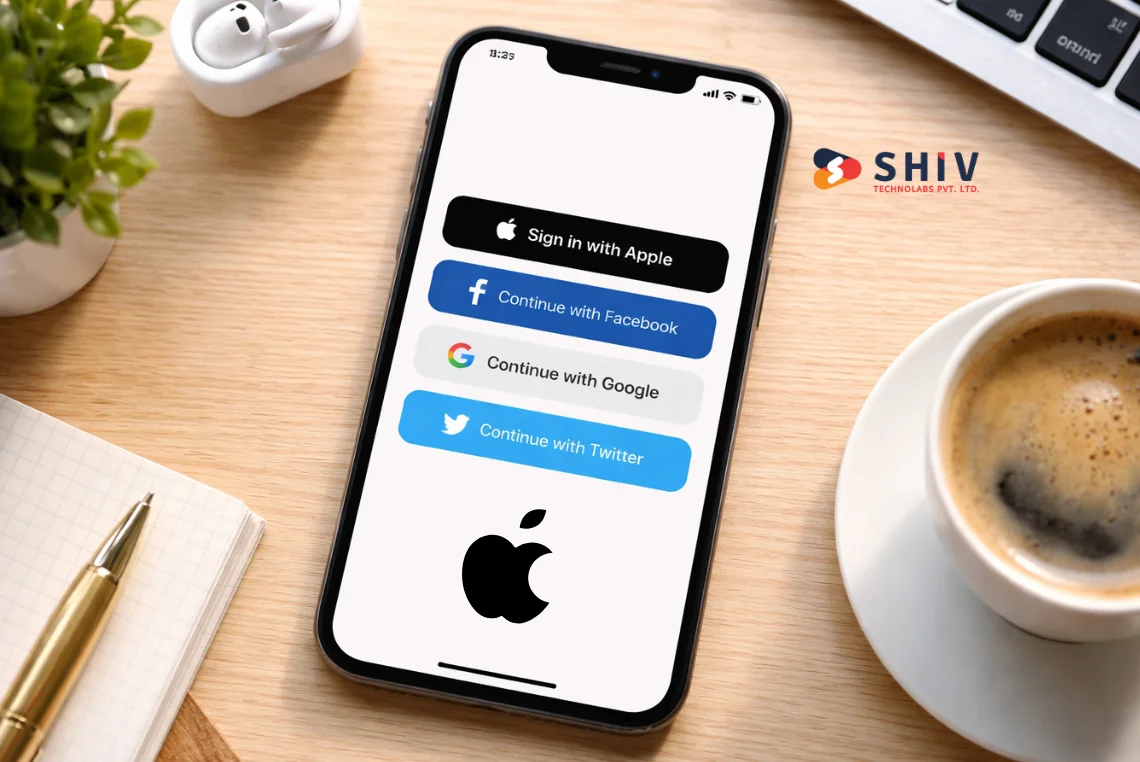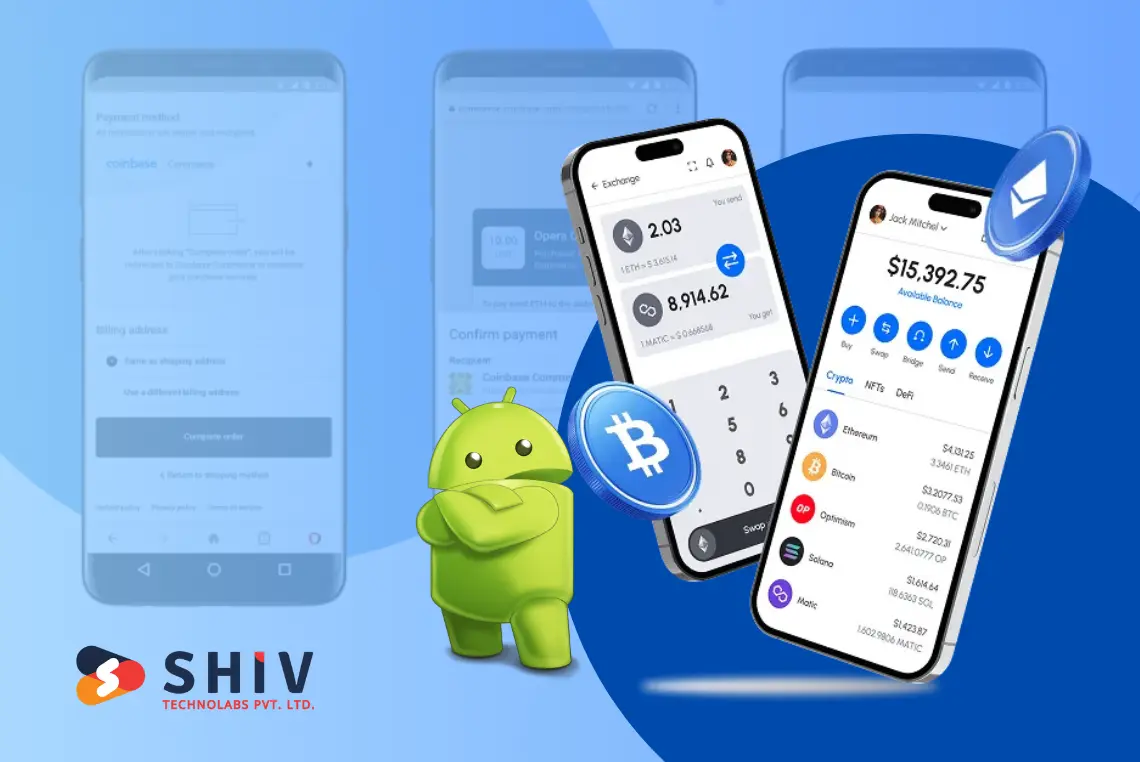Table of Contents
Running an event sounds exciting, but the reality is messy. You deal with schedules that keep changing, speakers asking for updates, and attendees who want clear information fast. Old methods like printed brochures or long email threads made sense years ago, but today they just add more stress and confusion.
Event apps change how this process works. Instead of waiting for emails, attendees see updates the moment organizers send them. Speakers can share details directly through the app, and polls or surveys let participants give feedback on the spot. Organizers save time, and guests feel more connected to the event.
That’s why Event App Development has become a major focus for businesses and organizers. From short local sessions to large global events, apps make planning less chaotic. They keep people informed, cut down on confusion, and simplify the overall flow.
Why Do Organizers Need Event Management App Development?
When you run an event, you face shifting schedules, last-minute updates, and nonstop messages. Using paper lists or separate tools often causes more chaos than help. Event apps simplify the entire process by bringing these tasks into one platform.
Key advantages for organizers include:
- Quick sharing of updated agendas without reprints.
- Push alerts that reduce attendee confusion.
- Networking tools for better interaction.
- Access to live reports for measuring engagement.
- Lower costs compared to printing and logistics.
Industry Insight: Statista reports that event app adoption is growing quickly, with the market expected to hit $6.6 billion by 2028.
What Are the Must-Have Features in an Event App?
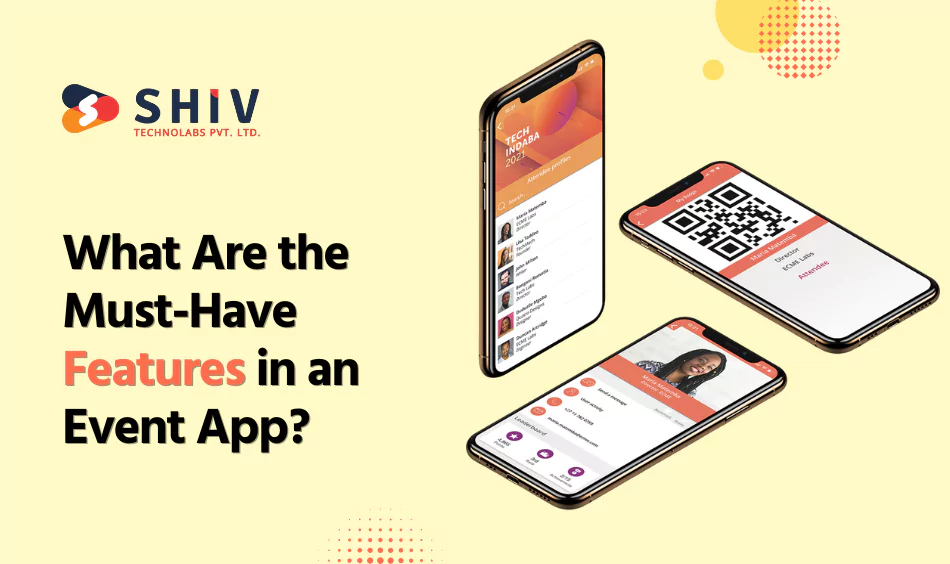
Not all apps deliver the same results. A well-designed event app includes features that help both attendees and organizers.
Important features to consider:
- Personalized agendas that let attendees plan their day.
- Speaker profiles with bios and session details.
- Push notifications for live updates.
- Offline access so users aren’t stuck without internet.
- Polls and surveys for gathering feedback.
- Data protection that keeps attendee details safe.
Traditional Event Tools vs Event Apps
| Feature | Traditional Tools | Event Apps |
|---|---|---|
| Schedule updates | Slow and static | Instant and flexible |
| Attendee networking | In-person only | In-app chat and connections |
| Engagement measurement | Manual surveys | Real-time reports |
| Cost of operation | High with printing | Lower with digital tools |
| Notifications | Email or calls | Instant app alerts |
Which Types of Event Apps Should Organizers Consider?
The type of app you choose depends on the nature of your event. Here are the main categories:
- Conference apps – for large sessions, speakers, and networking opportunities.
- Corporate apps – best for internal meetings, training, and AGMs.
- Planning apps – designed for event planners managing vendors and tasks.
- Custom vs white-label apps – a decision between flexibility and speed of launch.
Custom vs White-Label Event Apps
| Factor | Custom App | White-Label App |
|---|---|---|
| Cost | Higher | Lower |
| Flexibility | Fully adjustable | Limited changes |
| Launch time | 6–12 months | 1–2 months |
| Scalability | Long-term growth | Restricted |
How Does Technology Power Smarter Event Apps?
Event apps only work if the technology behind them does its job well. People expect updates instantly. They also want the app to run on every phone. React Native and Flutter help with that. One codebase, two platforms. Less effort, less time wasted.
Real-time updates matter even more. A room change or agenda tweak must show up for attendees right away. APIs and WebSockets handle this part. Organizers also need dashboards. They check how many users join a session, who opens a push alert, or which feature gets more clicks. Without those numbers, it’s hard to judge event success.
Common technologies in the stack include:
- React Native or Flutter for the app itself
- Node.js, Python, or PHP for the back end
- APIs and sockets for instant updates
- Dashboards for reports and analytics
- CRM or ticketing integrations for extra control
How to Build an Event App Step by Step
You can’t just code an event app overnight. Every stage adds value, and skipping steps usually causes trouble later.
Here’s how most teams build one:
1. Set clear goals – Decide if the app should cover networking, ticketing, or both.
2. Plan the design – Draw wireframes for speaker pages, agendas, and notifications.
3. Build front-end and back-end – Create the interface and connect it with server logic.
4. Test carefully – Check speed, offline access, and security features.
5. Release the app – Publish on app stores and promote it to attendees.
If you move slowly and plan early, you’ll launch faster in the end. Teams that rush usually spend more time fixing errors later.
What is the Cost and Timeline for Event App Development?
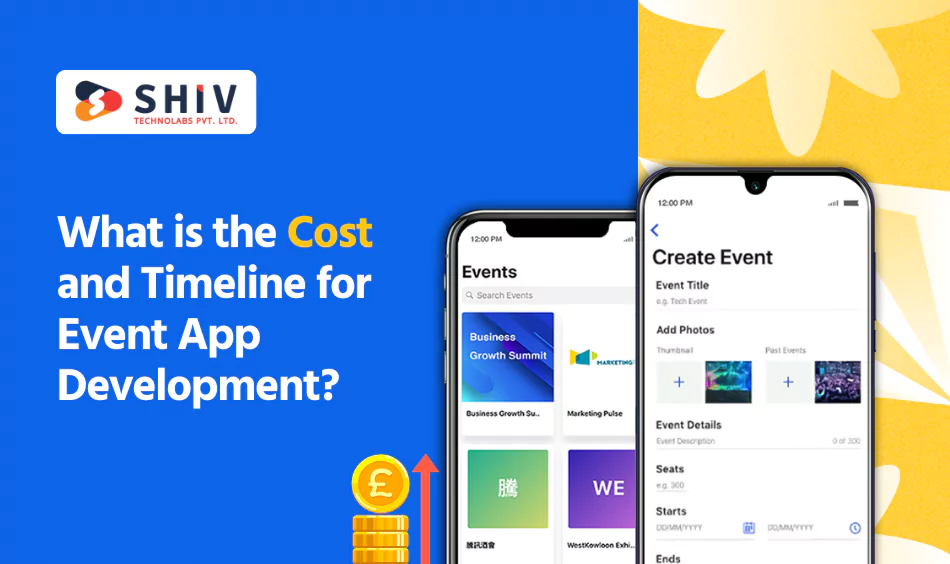
Cost depends on features. A simple app that only shows an agenda and sends alerts stays cheap. Add in networking, payments, or analytics, and the budget rises. If you want AR/VR or hybrid event support, be ready for longer timelines and higher costs.
Typical ranges look like this:
- 2–4 months for basic apps with alerts and schedules.
- 6–8 months for mid-level apps with integrations.
- 8–12 months for advanced apps with analytics and AR/VR.
| App Type | Features | Timeline | Cost (approx.) |
|---|---|---|---|
| Basic | Agenda, alerts, profiles | 2–4 months | $20k–$35k |
| Mid-level | Networking, CRM links | 6–8 months | $40k–$65k |
| Advanced | Analytics, AR/VR, hybrid | 8–12 months | $70k–$120k |
Final cost changes with region, design, and developer skills.
What Does the Future Hold for Event Apps?
Event apps keep evolving as new technology comes in. What feels advanced today may look outdated in just a year. Organizers already see demand for features that make events smarter, faster, and more personal.
Here are a few directions event apps are heading:
- AI-driven personalization – Attendees won’t scroll through dozens of sessions. AI will suggest talks, workshops, or people based on their interests.
- AR and VR support – Imagine walking through a virtual expo hall before even arriving. These features will soon feel standard, not special.
- Predictive analytics – Organizers won’t wait until the event ends to measure success. Data will show live patterns, like which sessions might need a bigger room.
- Hybrid and multi-location support – Large events already run across cities or even countries. Apps will connect these experiences and keep everyone in sync.
Fact: A survey by EventMB showed that 68% of event professionals believe mobile apps are the most effective digital tool for engagement.
Why Smarter Event Apps Matter for Organizers
Running events without technology feels risky now. Attendees expect updates on their phones, and organizers can’t afford to send emails that arrive late. Apps give control, save time, and reduce errors. They also create data that planners can use for the next event.
Think about it:
- Paper guides go out of date the moment something changes.
- Email threads get lost in crowded inboxes.
- Without data, you guess what worked and what didn’t.
Apps solve all three problems. That’s why companies investing in digital tools usually see higher attendee satisfaction and lower planning stress.
Final Thoughts – Why It’s Time to Build Smarter Event Apps
The future of events points in one direction: smarter apps. They simplify planning, give attendees what they expect, and help organizers run events with confidence.
Organizers must decide which type of app fits best. A custom app gives complete control, while a white-label option delivers speed. Both can work, but only when the development partner understands the event’s goals.
That’s where Shiv Technolabs makes a difference. The team builds event apps that handle real-world challenges, from schedule changes to attendee interaction, so organizers can focus on the event itself.
As a leading Mobile App Development Company, Shiv Technolabs designs solutions that adapt as events grow. These apps scale with each project, support future updates, and deliver long-term value rather than short-term fixes.

